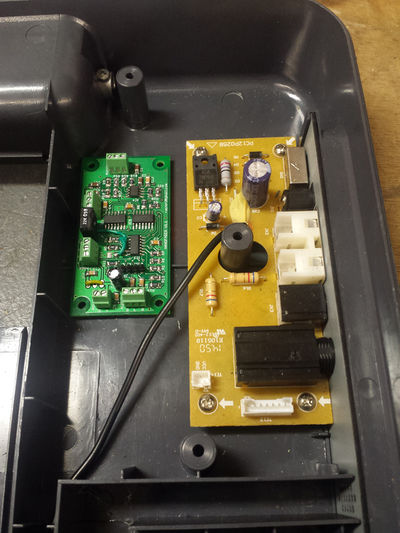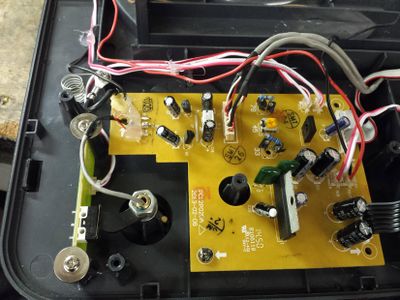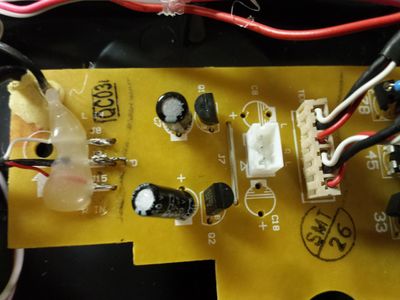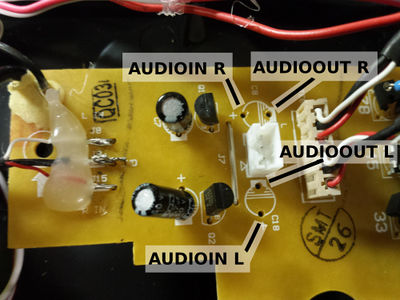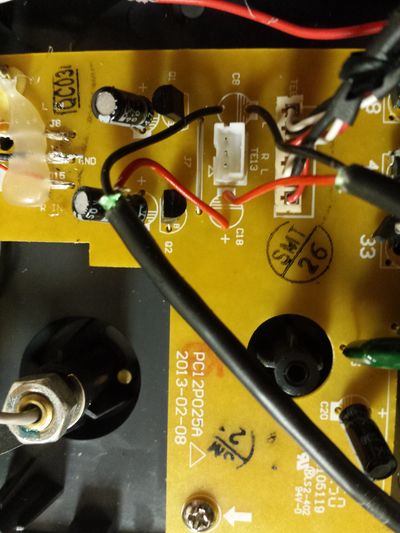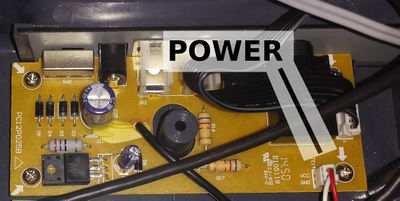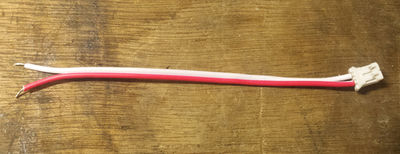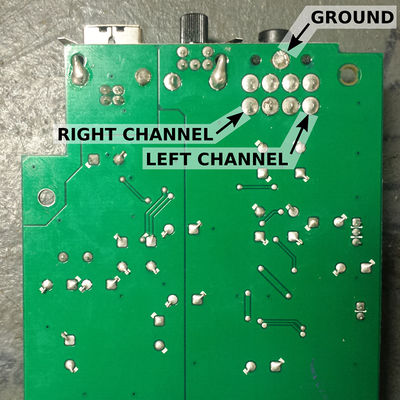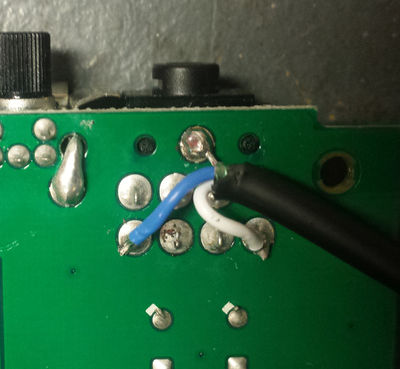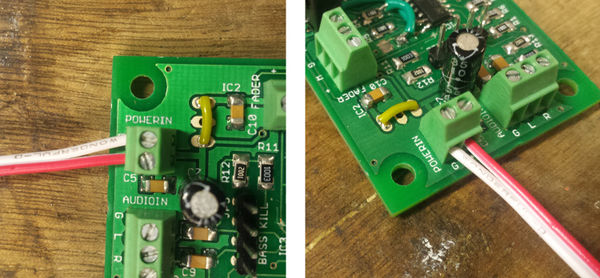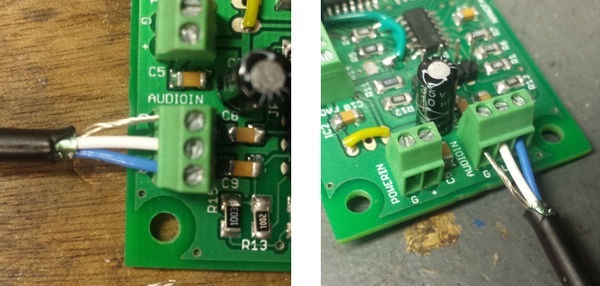Nanofader PT01 Install Guide
Contents
Open the PT-01
Remove all of the screws from the bottom of the PT-01, and lift the top section off. Unplug the black ribbon cable linking the top and bottom sections.
Board placement
Probably the best place for the nanofader board is next to the power supply board :
Don't secure the board to the pt-01 case until you have connected and tested everything.
Unscrew the main board
The main board is located in the top section, and looks like this :
Unscrew the four screws holding it to the case, and flip it over so you can access the underside. You'll probably have to remove a lot of hot glue to get enough slack on the cables.
Replace C8 and C18 with wires
Locate capacitors C8 and C18, which are towards the top left of the board (in the above picture). Desolder and remove them, like so :
The capacitors need to be replaced with wires that connect to the nanofader board. The connections should be made as follows :
Use one short cable for the AUDIO IN L/R connections, and another short cable for the AUDIO OUT L/R connections, like so :
The cable's shield should only be connected at the nanofader end.
You can now screw the main board back in.
Power Connection
The power PCB is found in the lower section of the pt-01. We are going to disable the (pointless) USB board and steal its power connection :
Cut the USB power cable down to about 10cm or so and strip the ends :
Alternatively, if you don't want to disable the USB board (or you have an earlier PT-01), you can solder directly to the voltage regulator -
AUX IN connection
We can also hijack the USB board's STEREO INPUT connector to use as our AUX IN. The pinout of the connector is as follows :
Solder a longer length of audio cable to the underside of the USB board like so :
Nanofader connections
Now it's time to connect everything to the nanofader board!
All of the connections are made using green screw-in terminal blocks. To connect a wire, first strip the end (if necessary), make sure the terminal is completely unscrewed, then insert the wire into the terminal and turn the screw clockwise until it tightens.
POWERIN
The power cable (originally from the USB board) connects to the POWERIN connector on the nanofader. The red wire connects to the "+" terminal, and the white connects to the "G" terminal.
AUDIOIN and AUDIOOUT
The wires that replaced C8 and C18 are connected to the AUDIOIN and AUDIOOUT connectors. The shield of the cables should be connected to the "G" connector, and the left and right wires go to "L" and "R" respectively.
AUX IN
The AUX cable coming from the USB board should be connected just like the AUDIOIN and AUDIOOUT cables.
FADER
If you got your fader from me, I'll have labelled the wires. Connect "WWWWW" or "WIPER" to the "W" terminal of the FADER connector, and "GND" to the "G" terminal.
Click here for a full guide on how to connect various different fader types to the nanofader, including mounting suggestions.
Power on and test
Reconnect the black ribbon cable, power on the PT-01, start a record playing and check nothing blows up. Make sure the fader cuts the sound in and out (check both sides), and that the AUX IN works.
If the cut-in distance is too large, or the fader doesn't cut the sound, go to the next section.
Adjust Lag (optional)
With the fader closed, adjust the LAG pot with a small flathead screwdriver, until it JUST cuts the sound out and no more. Doing this with a record playing might be fiddly, maybe find something to stand the top section of the PT-01 on while you adjust the pot.
Fix board to PCB
Use blu-tak or something like that (adhesive pads? chewing gum?) to hold the board in place. For an even nicer solution drill some holes in the case and use stand-offs to hold the board in place.
Reassemble
You can probably figure this part out. Remember to put the screws back in the main board.
